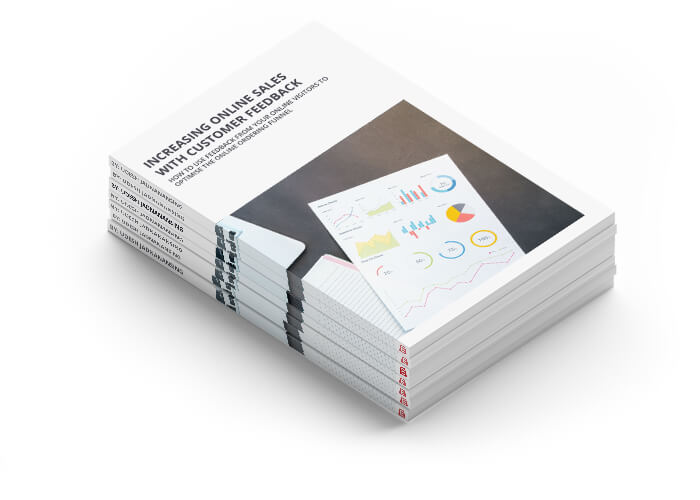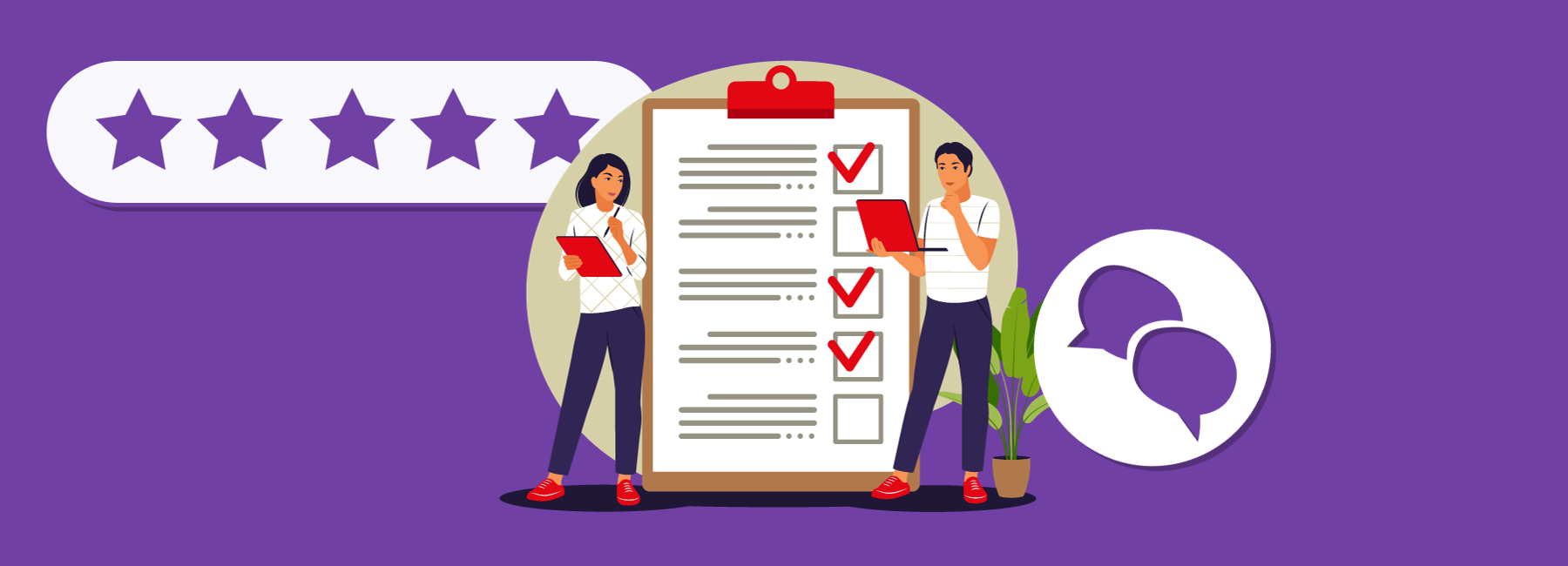It’s quite evident that the online buying process is no longer a linear one. Consumers are entering eCommerce websites from a myriad of different devices and online channels. And in the midst of all this chaos, your business needs to find a way to reel these consumers in as well as nurture them once they’ve entered your website.
In this blog, we will take a closer look at what the online buying process looks like for eCommerce websites, including customer behaviour as it relates to purchasing and the different online funnels in which you can capture these visitors and make them your customers. We’ll also provide you with tips on how to use online customer feedback to optimise the online journey.
The 5-stage (eCommerce) journey to purchase
It’s important to understand how your customers make the decision to purchase when shopping online. Here we have identified the five different stages on the journey to purchase:


Free White Paper: Increasing Online Sales with Customer Feedback
Looking for new ways to boost online conversions and increase sales on your websites and apps?
1. Awareness
This is the stage in which your customers are discovering your brand. Often eCommerce sites connect with these potential customers via advertising tools and campaigns on social media.

2. Consideration
Now that the user is familiar with your brand and is aware of which products you sell, they will start performing research. And considering the amount of eCommerce sites available out there, this should be no surprise. According to an article in Adweek, 81% of shoppers conduct online research before they make a purchase with site comparisons. This can include pricing comparison, product descriptions, product reviews, how soon they can receive the product, etc. Additionally, the difference in behaviour between new and returning customers should be identified. For example, new customers will often take longer to make a purchase and perhaps even order less items, whereas returning customers are already comfortable making a purchase and advocating your brand.

3. Preference
Based on this research, these visitors ultimately establish a preference in terms of which website they want to purchase from. Providing extra value for your customer will make a big difference in this stage. Here you will want to focus on any concerns your customers have regarding your product or the purchasing process – this can be done using customer feedback, but we’ll get to that later.

4. Purchase
This is when the customer finally decides to make his/her purchase online. They have chosen which website they are going to purchase from and click through to the checkout page. Two things are critical in this stage: a smooth checkout process and a clear confirmation of purchase.

5. Loyalty & Advocacy
Following a purchase, customers tend to build up a sense of loyalty with a brand. This is a crucial time for businesses to foster that loyalty and keep the customer coming back. And along with loyalty comes advocacy. We’ve talked about this topic before in previous blog posts. Once a customer has chosen and become committed to your business, they are like to become an advocate of your brand. This is important as it will help spread the word that others should choose your website/products.

Capturing customers within the online ordering funnel
Once it is understood how your customers intend to make their purchase decisions, it’s important to look more closely at the different funnels on your own eCommerce website and how you can optimise them. This is, of course, very difficult unless you have knowledge of how your customers experience each of the funnels and what the goals of these customers are in each of the funnels. You can gain this knowledge using online customer feedback. Here’s how it works:
In the beginning of funnel, it is important to understand the quality of your product content so that you can offer relevant product information to your visitors. When you do this the right way, more visitors will enter your sales funnel. Read more about collecting feedback on website content here.
Next is the actual purchase within the funnel. Many digital marketers are all too familiar with the term, ‘shopping cart abandonment’ as it contributes greatly to low conversion rates. And that is precisely why catching these customers on their way out is so important. Using exit feedback, marketers can gather ‘exit insights’ from visitors who decide not to purchase and understand why they made that decision.

Lastly, there is the confirmation page at the end of the funnel. This is the stage that is forgotten by many businesses. It is a common misconception that is no longer necessary to collect feedback from a customer who has successfully purchased a product on their website but a lot can be learned from these visitors. For example, perhaps they’ve ordered something but the journey to get there wasn’t exactly easy. In this case, you can ask them to provide a Customer Effort Score or Goal Completion Rate and explanation as to why they provided that score. This feedback will help you ensure that the online customer journey is easy and efficient.

Gauging loyal and returning customers
As previously mentioned, feedback is a crucial factor in creating loyal and returning customers. Collecting feedback post-purchase (once the product is delivered) can both provide your business with a lot of insight into the whole customer experience as well as give your customers a chance to express how satisfied (or dissatisfied) they were with the experience.
In these cases, the focus should lie more on their level of loyalty rather than on identifying specific page issues, bugs or other more user experience-related items. The goal is to gauge and understand how happy they are with your website, brand or products and this can be done using a variety of different loyalty metrics including, Net Promoter Score (NPS) and Customer Satisfaction (CSAT).

A smooth online journey with customer feedback
While the online customer journey may seem clear-cut, there will always be complications and technical issues that will stand in the way of a customer trying to convert. And one of the most effective ways of discovering those issues is by using customer feedback.
If you found this article interesting, check out other related blog posts:
Is Digital Feedback the Solution to All Online Retailer Struggles, 5 Ways Online Customer Feedback can Optimise Your Webshop, and Four Tips for Ecommerce Companies Who Want to Start Collecting Digital Feedback.
Want to learn more about Mopinion’s all-in-1 user feedback platform? Don’t be shy and take our software for a spin! Do you prefer it a bit more personal? Just book a demo. One of our feedback pro’s will guide you through the software and answer any questions you may have.Ready to see Mopinion in action?






